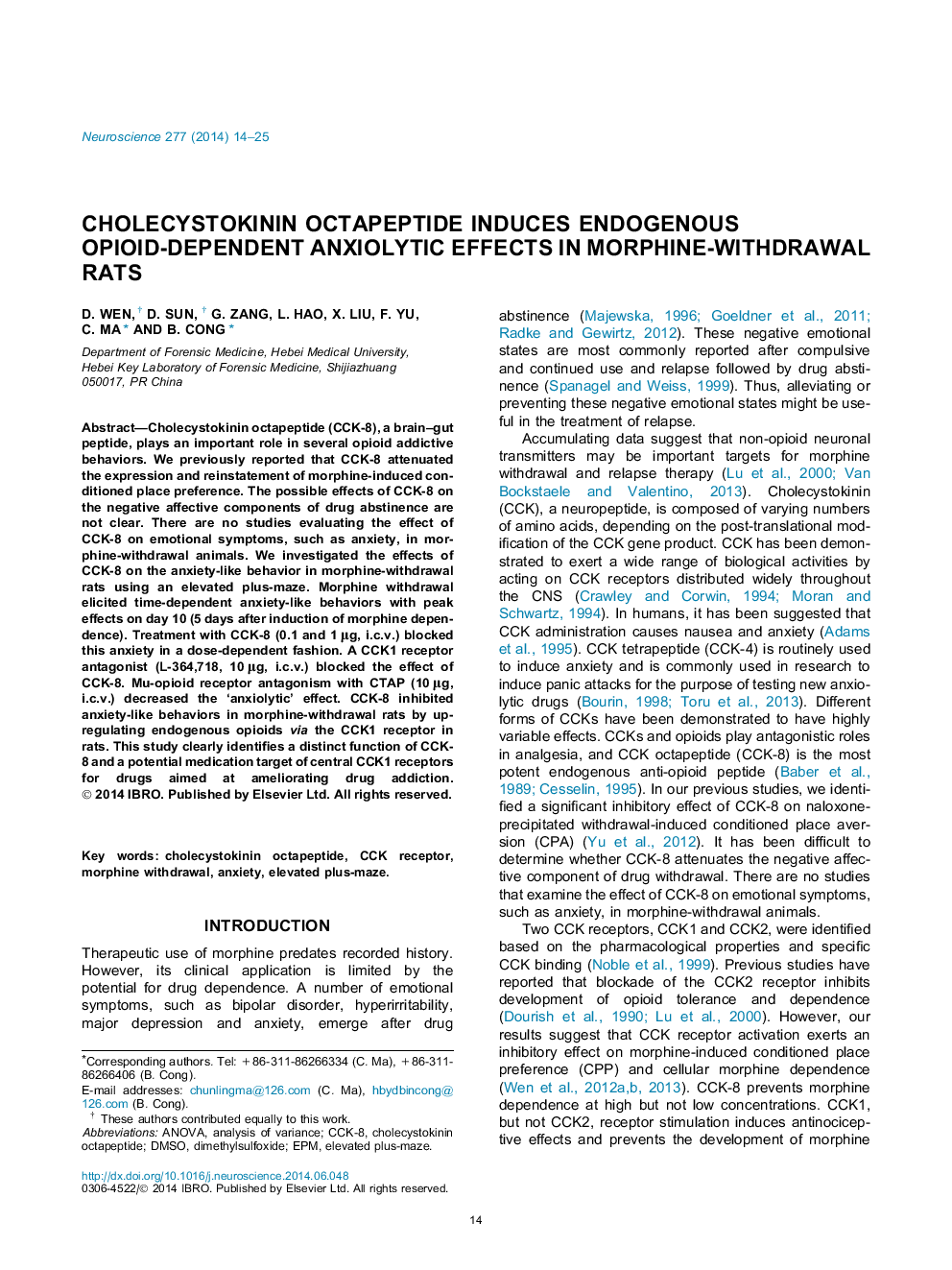| Article ID | Journal | Published Year | Pages | File Type |
|---|---|---|---|---|
| 6273585 | Neuroscience | 2014 | 12 Pages |
â¢CCK-8 attenuated anxiety profile in morphine-withdrawal rats.â¢The 'anxiolytic' effect of CCK-8 is mediated by the CCK1 receptor.â¢Mu-opioid receptor antagonism decreased the effect of CCK-8.
Cholecystokinin octapeptide (CCK-8), a brain-gut peptide, plays an important role in several opioid addictive behaviors. We previously reported that CCK-8 attenuated the expression and reinstatement of morphine-induced conditioned place preference. The possible effects of CCK-8 on the negative affective components of drug abstinence are not clear. There are no studies evaluating the effect of CCK-8 on emotional symptoms, such as anxiety, in morphine-withdrawal animals. We investigated the effects of CCK-8 on the anxiety-like behavior in morphine-withdrawal rats using an elevated plus-maze. Morphine withdrawal elicited time-dependent anxiety-like behaviors with peak effects on day 10 (5 days after induction of morphine dependence). Treatment with CCK-8 (0.1 and 1 μg, i.c.v.) blocked this anxiety in a dose-dependent fashion. A CCK1 receptor antagonist (L-364,718, 10 μg, i.c.v.) blocked the effect of CCK-8. Mu-opioid receptor antagonism with CTAP (10 μg, i.c.v.) decreased the 'anxiolytic' effect. CCK-8 inhibited anxiety-like behaviors in morphine-withdrawal rats by up-regulating endogenous opioids via the CCK1 receptor in rats. This study clearly identifies a distinct function of CCK-8 and a potential medication target of central CCK1 receptors for drugs aimed at ameliorating drug addiction.
